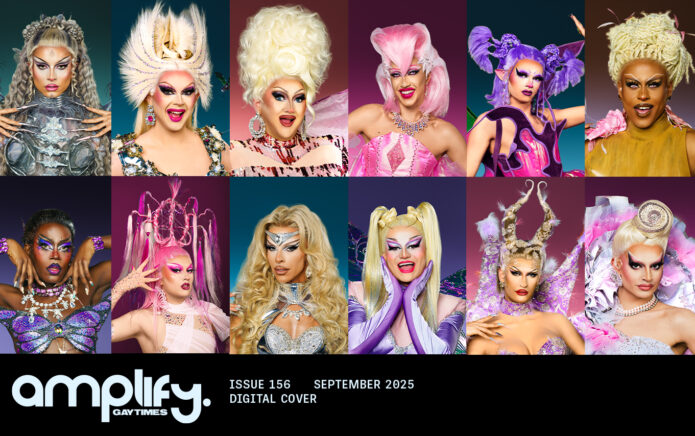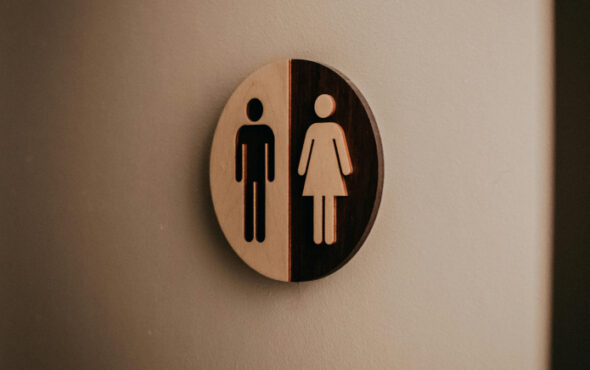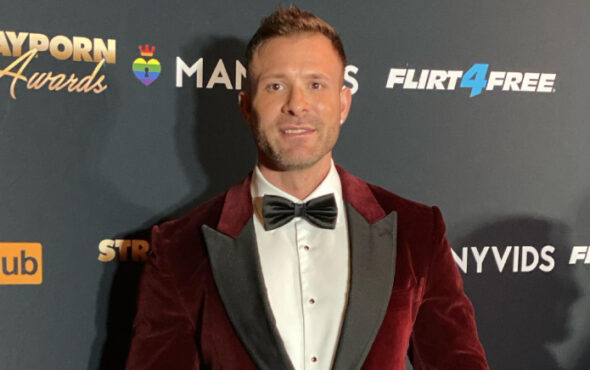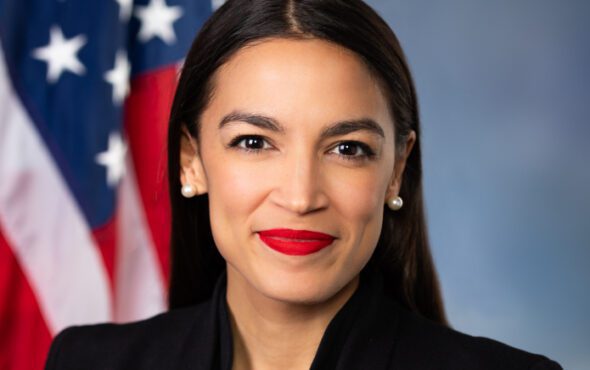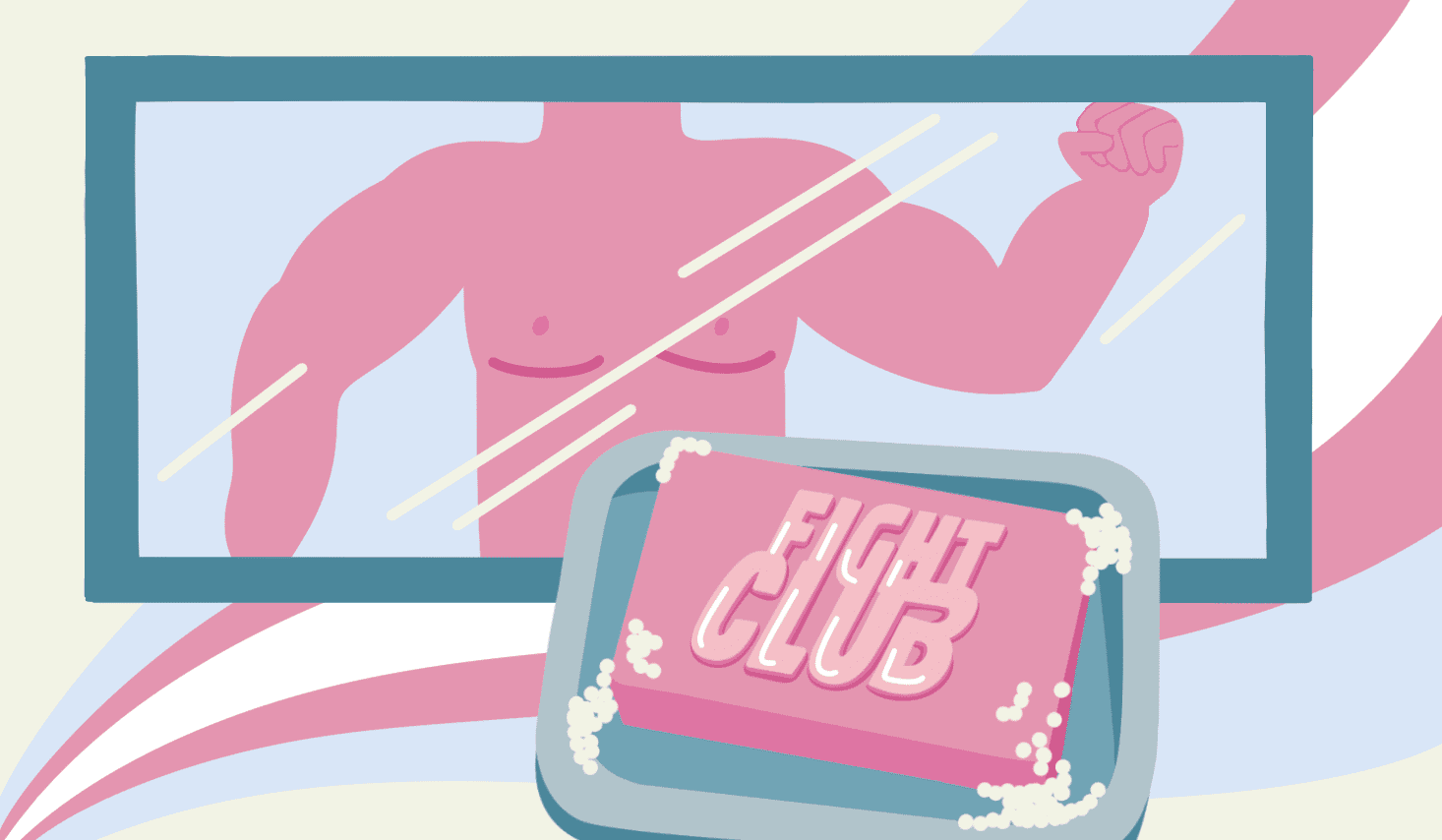
I have been trying to think of the first queer book I ever read.
I think it was probably something like Will Grayson, Will Grayson, which came out in the Looking for Alaska era of YA. I remember enjoying it, if that counts for anything. But I don’t remember feeling especially ‘seen’. My first LBGT books were not necessarily my most formative. One side effect of transition, for me at least, is that I often think of myself as being in flux. I am not ‘formed’, and the queer books that shape me the most are still being published.
Still, I have been racking my brain to come up with some transformational queer book that made me see myself clearly, that moved me in a profound way or arrived at a pivotal time in my life.
Instead, what comes to mind is Fight Club.
I would have liked to use this space to highlight a lesser known queer book, something underground, or something less cis, less white, less male. But life is weird. Sometimes the image of ourselves that we’d like to present isn’t the truth. Not knowing that I was queer until I was nearly an adult – and then not really engaging with it for seven years after my transition – means that I wasn’t exactly immersed in LGBTQ+ culture until quite recently. I still haven’t read Giovanni’s Room. I haven’t read Stone Butch Blues. I read a lot of fanfiction in the late 2000s and early 2010s, if that counts for anything.
So, anyway. Fight Club.
On the surface, Fight Club isn’t especially queer. But when I first read it, neither was I. Most people assumed that it was only a matter of time before I realised I was a lesbian, but I knew with absolute conviction that wasn’t the case. I wasn’t attracted to girls, for a start. I knew there was something else going on with me, that my fervent longing to be a boy wasn’t exactly regular, but I assumed it was a childish fantasy or somehow related to mental illness. In hindsight, I can see all these disparate pieces floating in the ether of my self, waiting to fall into place. In that context, it’s easy to see why Fight Club appealed.
Chuck Palahniuk’s debut novel is pretty much about what it says on the tin. An unnamed male narrator and a twisted, anarchic figure called Tyler Durden beat each other up in a bar carpark one evening, and then they start a fight club, and soon fight clubs start springing up in other carparks and basements across the United States. I’m over-simplifying, but things sort of lose control after that.
Like most people, I saw Fight Club the movie first. When I was sixteen my friend and I watched it at his place the night I got dumped via text by a boy I’d been planning to dump in person the next day. Later, the boy who text-dumped me would say it was because I ‘lacked passion’, which as an adult is hilarious in its pretentiousness, but at the time just felt quite rude. It also didn’t feel entirely wrong. I was a passionate person, of course – just not about the relationship. The thing was, I didn’t want to date anyone as a girl. I was fixated on masculinity, obsessed with it even, but I wanted it from the inside.
Fight Club blew my mind. It felt sharp, and fast, and the soundtrack hooked right into me. By the time I knew the book even existed, I was already in deep. I read it, and I loved it, and then I read it again.
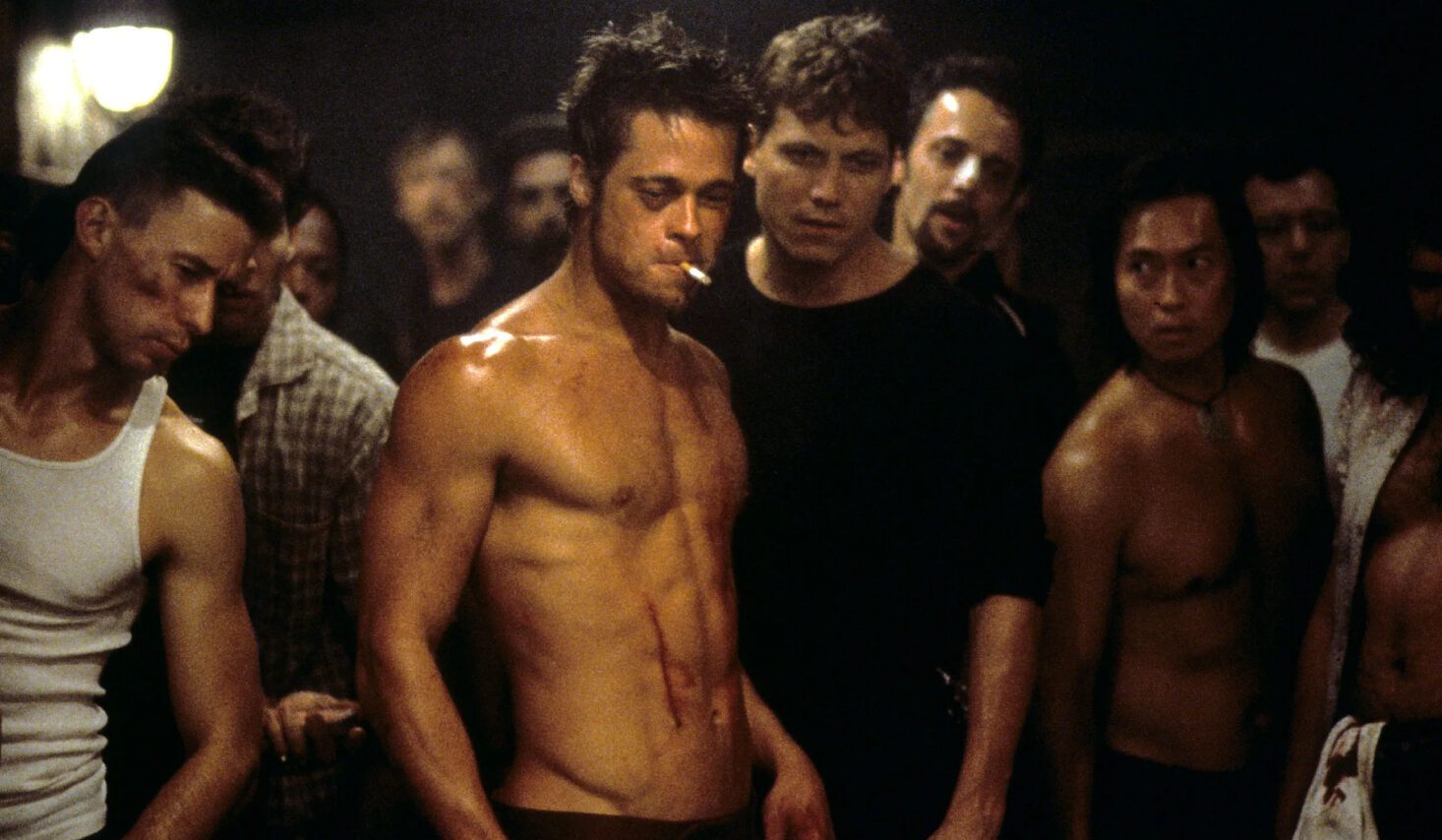
Like me, the narrator of Fight Club is obsessed with masculinity. Like me, the narrator has another self under the surface of his own. This other self could change his life completely if only he could get enough clarity to look at it properly for a minute or so. But instead it flickers at the edge of his vision, coming to him in dreams he writes off the next day.
Sounds familiar.
Of course, if it’d just been about the story then I could have stuck with the movie and been done with it. But it was the book that had the most effect. Chuck Palahniuk writes in these short, conversational sentences – you open the book and you are inside the narrator’s head, and he is telling you a story. Even at the time, I knew the style would have a huge impact on me as both a reader and a writer. The first two sentences – ‘Tyler gets me a job as a waiter, after that Tyler’s pushing a gun in my mouth and saying, the first step to eternal life is you have to die. For a long time though, Tyler and I were best friends’ – have the kind of sensibility that I’ve been seeking ever since. The characters are obsessed with each other, and they hate each other, and they quite literally can’t live with or without each other. Without giving too much away for those not already familiar, let’s just say the nature of the relationship between Tyler and the narrator is, in a word, complicated.
The book’s cultural impact is complicated, too. Fight Club has had its share of criticism. I love it, and it shaped me, but I know there are parts of it that wouldn’t sit right with me as an adult. Like The Matrix, it has also been co-opted by the alt-right, and it’s been a touchstone for incels, pickup artists and trolls. And yet, I can’t separate my life as an author from it. I read it at the right time, and it lit something in me that’s still smoking, even if it’s not exactly still on fire. After years of shame about who I am as a person, I’m no longer in the business of denying the things that have made me happy, regardless of what other people think of them – or of me for liking them. That defiance has served me well in terms of my sexual orientation and gender identity, and it serves me well when it comes to media too.
You cannot control which books, films or TV shows speak to you, and when you are young you will like things that later you might find a little bit difficult. Things you love will take on other meanings, or you’ll understand them differently as your worldview changes. You will look back and see things in a context you didn’t have at the time.
And that’s just fine.
Liam is one of three panellists taking part in the Penguin Pride 2022 Penguin Live Event, taking place at Above The Stag, Vauxhall, 20th July 2022.
Liam will be joined by fellow panellists Joel Rochester and Prishita Maheshwari-Aplin to talk about the LGBTQ+ inclusive books that changed their lives, leading the audience through personal and uplifting stories of self-discovery and the unique power of reading.
Tickets are still available here.
